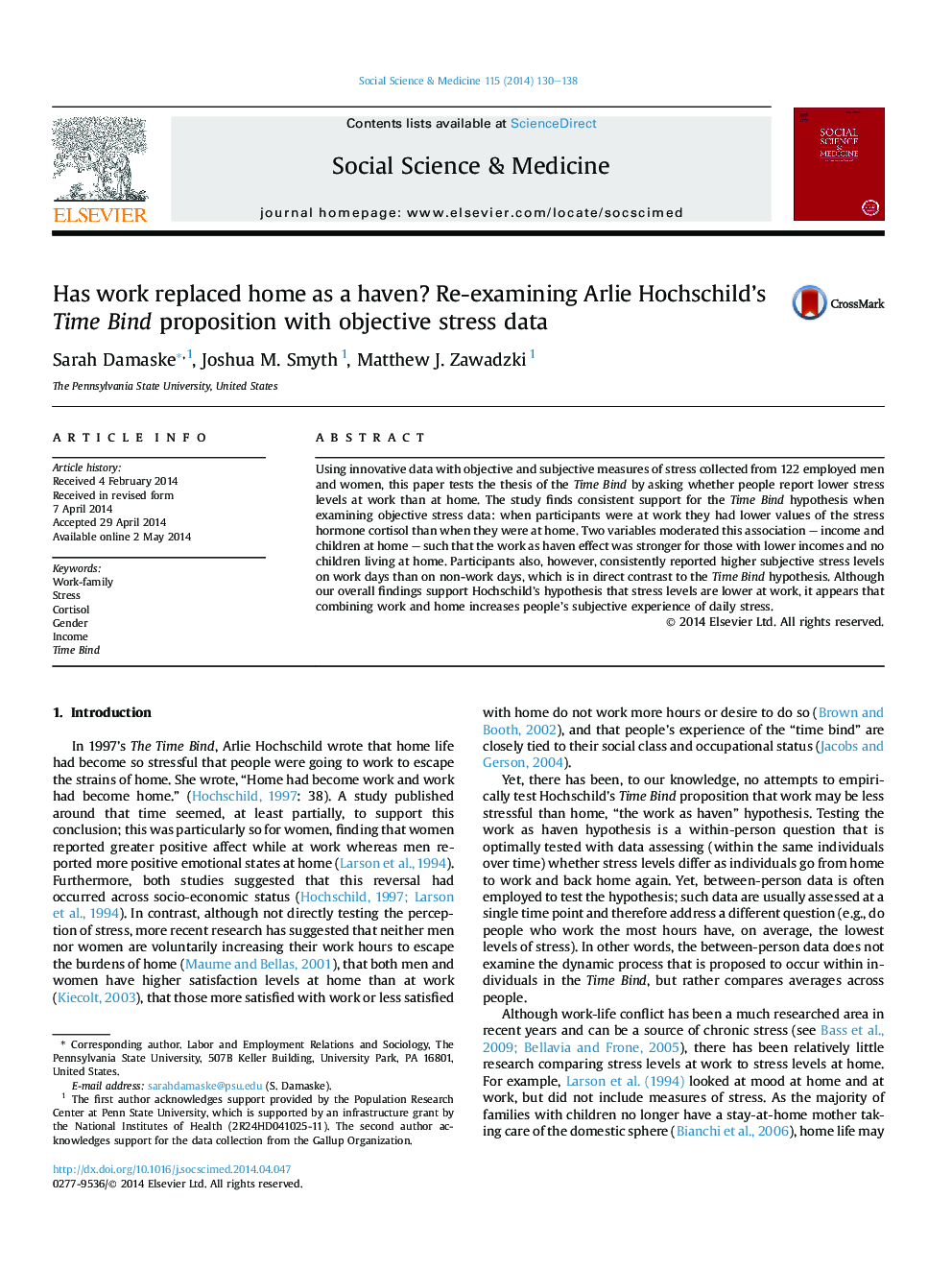| کد مقاله | کد نشریه | سال انتشار | مقاله انگلیسی | نسخه تمام متن |
|---|---|---|---|---|
| 952276 | 1476053 | 2014 | 9 صفحه PDF | دانلود رایگان |
• Participants had lower levels of physiological stress when at work than at home.
• Those with higher incomes reported more stress when at work than at home.
• Women reported significantly greater happiness when at work than at home.
• Those with no children at home reported less stress when at work than at home.
• Participants reported higher stress levels on work days than on non-work days.
Using innovative data with objective and subjective measures of stress collected from 122 employed men and women, this paper tests the thesis of the Time Bind by asking whether people report lower stress levels at work than at home. The study finds consistent support for the Time Bind hypothesis when examining objective stress data: when participants were at work they had lower values of the stress hormone cortisol than when they were at home. Two variables moderated this association – income and children at home – such that the work as haven effect was stronger for those with lower incomes and no children living at home. Participants also, however, consistently reported higher subjective stress levels on work days than on non-work days, which is in direct contrast to the Time Bind hypothesis. Although our overall findings support Hochschild's hypothesis that stress levels are lower at work, it appears that combining work and home increases people's subjective experience of daily stress.
Journal: Social Science & Medicine - Volume 115, August 2014, Pages 130–138
